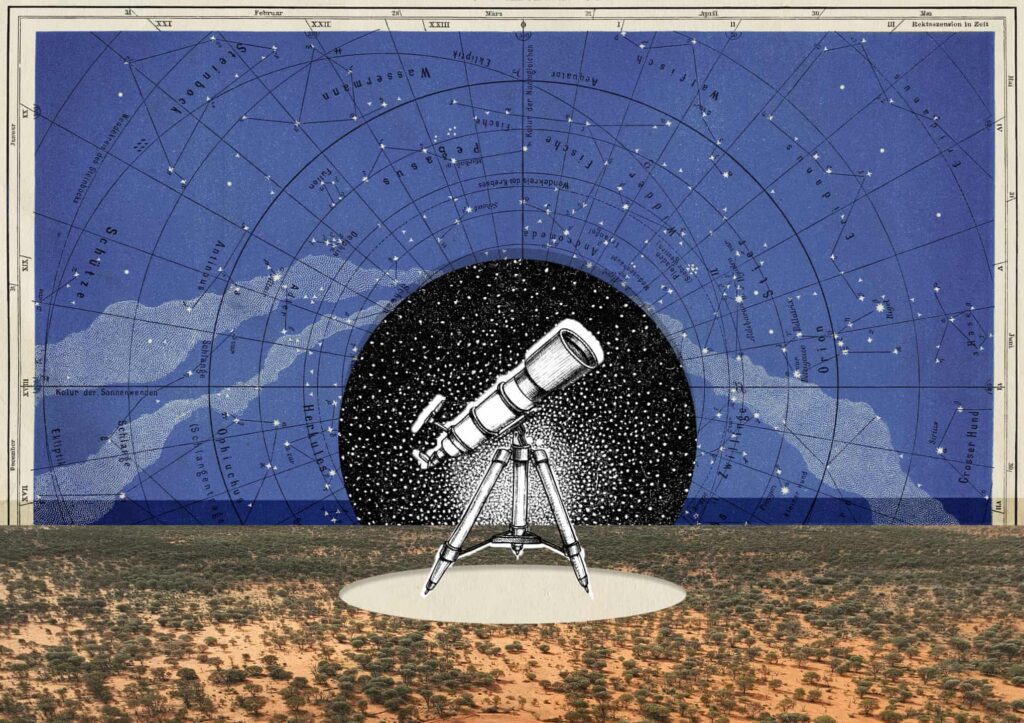
A major scientific initiative, the Square Kilometre Array Observatory (SKAO), is currently under scrutiny due to allegations of financial misconduct. This ambitious project, which includes a telescope in outback Western Australia and a sister installation in South Africa, aims to explore the universe’s first billion years through a network of over 130,000 antennae. The SKAO is backed by a €2 billion (approximately A$3.6 billion) budget and has the potential to provide groundbreaking insights into topics such as the existence of extraterrestrial life and the evolution of galaxies.
Despite the project’s significance, allegations have emerged regarding financial mismanagement within the organization overseeing the SKAO. Concerns were raised by a former senior employee who filed a “protected disclosure” report in March 2025, calling for an investigation into the SKAO’s financial practices. This report was submitted directly to the SKAO’s global chair, Filippo Maria Zerbi, as the organization is not subject to Australian laws or regulatory oversight.
In response to these allegations, an email from Zerbi indicated that an independent evaluation is underway to address the numerous claims of misconduct. He stated that the organization is taking “all necessary actions” and that further investigations are required before conclusions can be drawn.
The Australian government’s contribution to the SKAO has increased significantly, with spending exceeding initial projections by more than A$150 million between 2020 and 2024. Originally, the Australian government pledged A$387 million over a decade for the construction and operation of the telescope. However, recent records show total expenditures from 2021 to 2025 reaching A$475 million. A spokesperson for the Department of Industry, Science and Resources attributed the additional costs to various factors, including funding shortfalls and economic adjustments.
Financial Oversight and Allegations of Mismanagement
The allegations extend to claims that member states’ public funds were lost through trading accounts, with one specific claim indicating that at least £12 million (about A$25.1 million) was lost in investments. The SKAO has denied any wrongdoing, asserting that no capital loss has occurred in its investment holdings. A spokesperson emphasized that money market funds were selected for their low-risk nature and that any perceived losses were due to cash withdrawals necessary for operational expenses.
Concerns regarding the SKAO’s financial practices have also been directed to the Financial Reporting Council in the UK, where the organization is headquartered. The whistleblower’s report alleges that the SKAO’s structure has created a “regulatory blind spot” that facilitates systematic deception of its 16 member governments.
Moreover, the SKAO has been criticized for budget mismanagement related to procurement processes, particularly regarding the construction of a permanent power supply for the telescope in Australia. Currently reliant on temporary diesel generators, the project has faced delays in establishing a solar power system. Although the SKAO claims that the project’s central processing plant will eventually be powered primarily by renewable energy sources, no solar plant is yet operational.
While the organization has made commitments to integrate renewable energy, it continues to incur substantial costs, reportedly spending over A$1 million annually on diesel fuel. A tender document released in March outlines plans for a “phase one” diesel-operated system to be operational by early 2026, with efforts to establish a more sustainable energy solution by late 2028.
Funding Challenges and European Commission Scrutiny
Financial scrutiny has also involved the European Commission, which sought repayment of €3.4 million from a €5 million grant awarded to the SKAO for infrastructure development. The Commission deemed many of the claimed costs ineligible, resulting in a reduction of the grant amount recognized to €2.5 million. The SKAO spokesperson indicated that the grant was managed by its predecessor organization and that the issues were settled amicably.
An internal update from early July noted extensions to the project’s schedule and identified a “budget gap” that would require assessment in the coming months. This update acknowledged that the current contingency budget may not cover the expected engineering changes necessary for the project’s continuation.
As the SKAO moves forward, it faces a complex landscape of financial challenges and allegations. The organization insists that it adheres to best practices in financial management, with rigorous audits in place. Moving forward, the outcomes of ongoing investigations and the management of funding discrepancies will play a crucial role in shaping the future of this landmark scientific endeavor.







